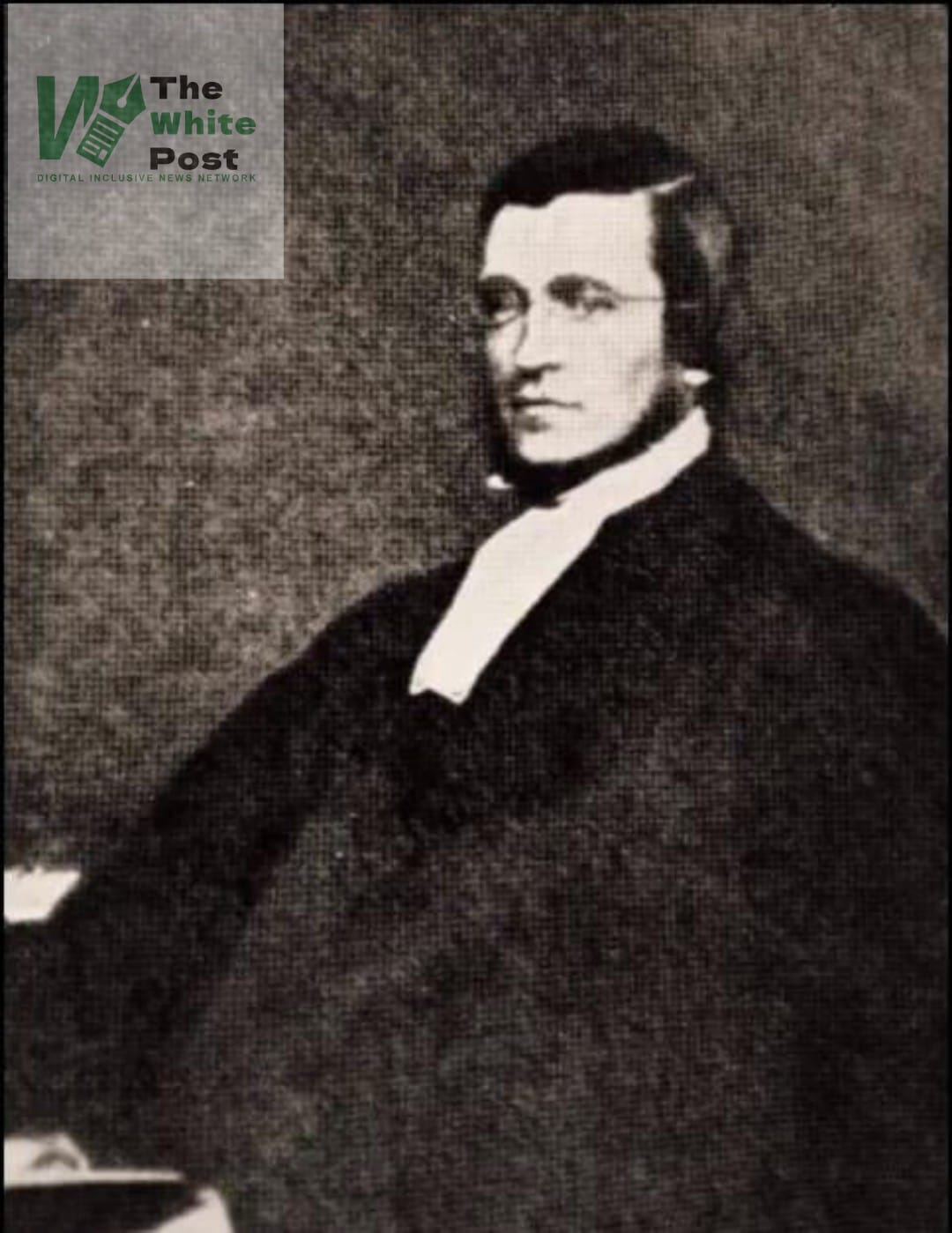By: Kashif Nawab
Thomas Hunter’s name might not be widely recognized, but his contributions as the first missionary in Pakistan are of immense historical and cultural significance. In the mid-19th century, Hunter embarked on a journey that would lay the foundation for Christian missionary work in a region characterized by its rich tapestry of cultures, languages, and religions. His efforts not only brought Christianity to a part of the world where it was virtually unknown but also contributed to the broader narrative of cultural exchange and understanding.
Born in 1810 in Scotland, Hunter exhibited a profound sense of spirituality and a deep commitment to his faith from a young age. His early education, influenced by the evangelical movements of the time, prepared him for a life dedicated to spreading the Christian gospel. The wave of missionary enthusiasm that swept through Europe in the 19th century, inspired by figures like David Livingstone, played a significant role in shaping Hunter’s aspirations. The British Empire, at its zenith, was facilitating travel and communication across continents, making remote parts of the world accessible to Europeans. This period of exploration and colonization, while often criticized for its exploitative aspects, also opened doors for cultural and religious exchanges.
In 1852, Hunter was commissioned by the Church of Scotland to undertake a mission to India. However, his path soon led him to the Punjab region, which, following the annexation by the British Empire in 1849, presented new opportunities for missionary work. The Punjab was a diverse region, home to Sikhs, Muslims, Hindus, and various tribal communities. Amidst this diversity, Hunter saw a fertile ground for his mission.
Traveling to Pakistan in the mid-19th century was no small feat. The journey was long and arduous, involving months of travel by sea and land. Hunter’s voyage took him from Scotland to the bustling ports of India, and from there, overland to the heart of the Punjab. Despite the difficulties, Hunter’s resolve remained unwavering. His diaries from this period reflect a man driven by a profound sense of purpose and a deep commitment to his faith.
Upon his arrival in Punjab, Hunter set about learning the local languages, primarily Punjabi and Urdu, to effectively communicate with the local populace. His linguistic skills and genuine interest in the culture helped him gain the trust and respect of the people. Understanding the importance of education, he established schools where the local children could receive instruction in both secular and religious subjects. These schools became the cornerstone of his missionary work, providing a platform for cultural exchange and mutual understanding.
Hunter’s approach to missionary work was inclusive and respectful of the local traditions and beliefs. Unlike some missionaries of his time, who sought to impose their beliefs on others, Hunter emphasized dialogue and understanding. He engaged in conversations with local religious leaders and scholars, learning about their beliefs while sharing his own. This approach not only facilitated his mission but also helped in building bridges between different communities.
Hunter’s mission was fraught with challenges. The socio-political landscape of the region was complex, with various factions vying for power and influence. The British colonial administration, while supportive of missionary activities, was primarily focused on maintaining control and order. Additionally, the diverse religious landscape meant that any attempts to introduce a new faith were met with suspicion and resistance. Health issues were another significant challenge. The tropical climate, combined with the lack of modern medical facilities, made life difficult for Hunter and his fellow missionaries. Hunter himself suffered from several bouts of illness, which at times hampered his work. Despite these obstacles, Hunter’s dedication never wavered. His letters and journals from this period reveal a man who, despite the hardships, remained steadfast in his mission.
Thomas Hunter’s work in Pakistan laid the groundwork for future missionary efforts in the region. His schools and educational initiatives continued to flourish, providing education to generations of children. These institutions became centers of learning and cultural exchange, fostering a sense of community and understanding among people of different faiths. Hunter’s respectful and inclusive approach to missionary work also left a lasting impact. His emphasis on dialogue and mutual respect set a precedent for future missionaries, encouraging them to approach their work with sensitivity and understanding. This approach not only facilitated the spread of Christianity but also helped in promoting a sense of unity and harmony among the diverse communities of the region.
Moreover, Hunter’s work had a broader cultural impact. His efforts to learn the local languages and engage with the local culture contributed to a greater understanding and appreciation of the rich cultural heritage of the region. His writings and observations provide valuable insights into the social and cultural fabric of 19th-century Punjab, offering a unique perspective on a region in transition.
Thomas Hunter’s journey as the first missionary in Pakistan is a testament to the power of faith, dedication, and cross-cultural understanding. His efforts not only brought Christianity to a new land but also fostered a sense of mutual respect and understanding among different communities. In a world often divided by religious and cultural differences, Hunter’s legacy serves as a reminder of the importance of dialogue, empathy, and respect. Today, the schools and institutions he established continue to serve the community, carrying forward his vision of education and mutual understanding. Hunter’s story is a significant chapter in the history of missionary work, highlighting the potential for positive change through respectful and inclusive engagement. His life and work remain an inspiration for future generations, exemplifying the enduring power of faith and the importance of building bridges across cultures and religions.


